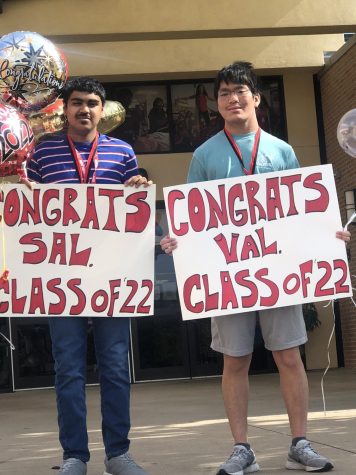R.Kelly Exposed In Docuseries
April 3, 2019
On January 3, a six-part docuseries premiered on Lifetime, highlighting R&B singer Robert Kelly’s, more popularly known as R.Kelly, years of sexual abuse and harassment of mostly black, vulnerable young girls and sparked a conversation about who the music industry and the black community truly protect.
The docuseries, “Surviving R.Kelly,” uncovered the timeline of misconduct that was overlooked by society for up to two decades, allowing him to still produce and perform music and even win awards. The series produced by dream hampton drew attention to the issue of sexual abuse and how cases are handled differently when the victim is a certain race or age.
Many of Kelly’s victims were teenage women of color from disadvantaged communities and were in Chicago, where he would camp out at his old high school and after invite young girls to his house and music studio.
“They were usually girls with low self-esteem from low-income households,” journalism teacher Myca Williamson said. “He took advantage of their emotional immaturity and their sexual naivety. There were just so many bad ingredients mixed into this situation, where it was just a perfect storm for him to prey on these girls.”
Even after the allegations overflowed, R.Kelly still worked with major singers, like Lady Gaga and Celine Dion, while also producing and performing music at major events like the Grammys and the 2002 Winter Olympics.
Junior Adelaide Chaitezvi believes that people still supported Kelly and his music because of the admiration people have for celebrities.
“People are not thinking about how R.Kelly is a sexual predator,” Chaitezvi said. “They think of him as the man that we listen to at graduations and the songs we sing together.”
In the age of the #MeToo movement, predatory men like Kelly have been held accountable for their history of sexual abuse, but in the past, no one paid attention to the rise of allegations against him.
Williamson thinks this is because the black community’s inability to accept such horrible allegations against someone they admired so much.
“As a community, black people have such an attachment to music and what it does for us as a group of people,” Williamson said. “It’s difficult to accept the fact that this man could be so musically successful, but as an individual, be so disgusting. But, he was.”
Music artist Chance the Rapper received backlash because of his response to the series. In an interview with the Rolling Stones, he openly admitted that he didn’t care about the accusers’ stories because they were told by black women.
“I feel like society already has a negative idea about black women,” Chaitezvi said. “On top of them being black, we don’t normally believe women when they come forward.”
AP Literature teacher Matt Clarke believes the victim’s race plays a major role in his or her victim’s credibility because of how America’s society is structured against black women.
“[The] majority of his victims were black women, which in my opinion is an extremely vulnerable subpopulation of people in our country,” Clarke said. “I think black women, especially black girls, are the least protected in our society. If those little girls were blonde, this would have stopped really quickly.”
With the documentary series’ airing, Clarke hopes this brings a shift in how society perceives celebrities.
“People who have a wide following and are well known should be held to high accountability because of their platform,” Clarke said. “It would be really nice if these people who do have platform had someone in their inner circle that would try to protect people from becoming victims.”
Chaitezvi, however, believes there should be more solidarity within the black community.
“I feel like, in general, the black community has a problem uniting together,” Chaitezvi said. “We need more support for each other in the black community.”
Williamson, similarly, thinks there needs to be a shift in the way black people perceive themselves and their community as a whole.
“We have to respect ourselves more,” Williamson said. “We are so much more than our bodies. Black women are sexualized more than other women. We come in a variety of shapes, sizes and shades so it’s easy for us to be misunderstood, but that is not a reason for us to allow someone to take away something special. That is our dignity, our intelligence and our confidence.”
On Feb. 23, R Kelly turned himself in to Chicago police following his indictment on charges of sexual abuse.





